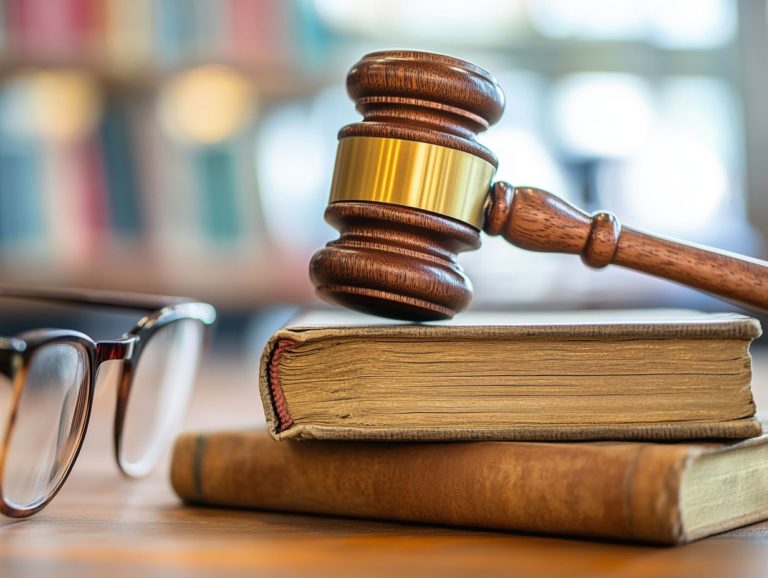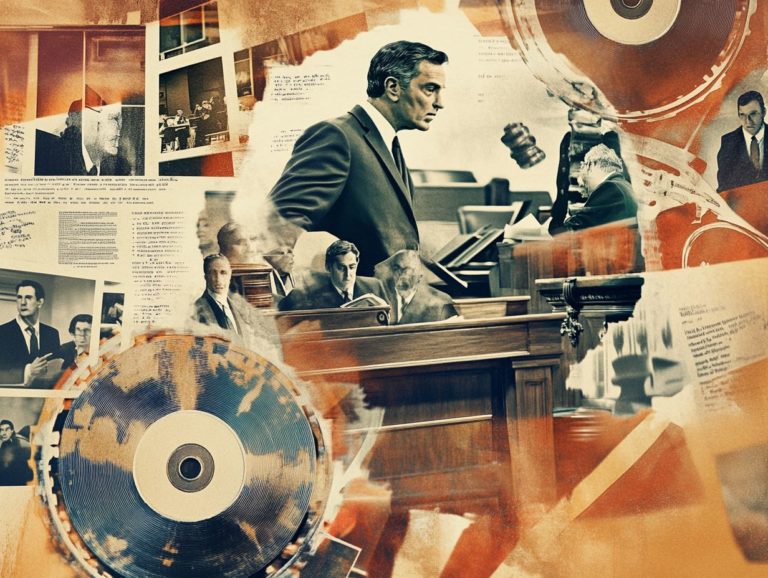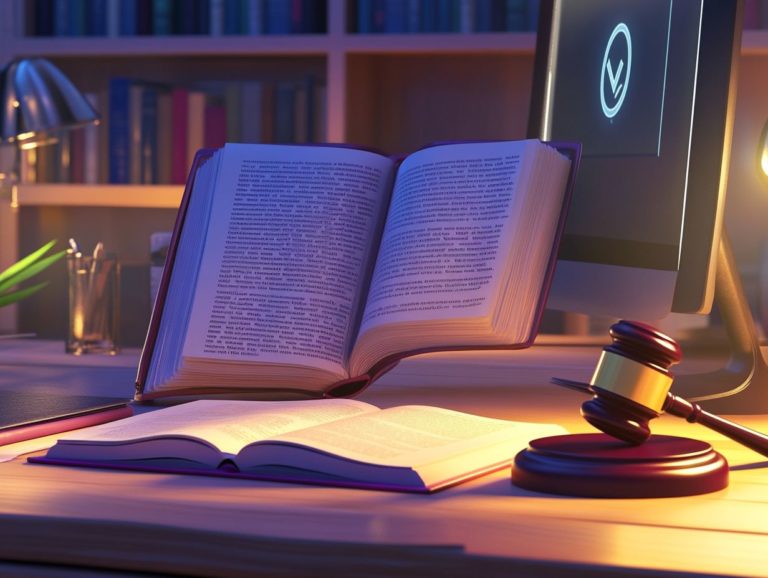The Importance of Copyright for Photographers
Copyright law holds immense significance for photographers, granting vital protections and rights over their creative endeavors.
By grasping the intricacies of copyright, you can empower yourself to safeguard your art, monetize your efforts, and navigate potential infringements. This article delves into the fundamentals of copyright specifically tailored to photography, highlighting many benefits it provides.
You ll be guided through essential steps to register and protect your work, allowing you to concentrate on what you cherish most capturing breathtaking images.
Contents
- Key Takeaways:
- Understanding Copyright Law for Photographers
- The Benefits of Copyright Protection for Photographers
- How to Copyright Your Photographs
- Protecting Your Copyright
- Copyright Infringement: What to Do
- Frequently Asked Questions
- What is the importance of copyright for photographers?
- How does copyright protect photographers?
- Do photographers automatically have copyright for their work?
- Is it important for photographers to register their work with the copyright office?
- Can photographers sell their copyright to someone else?
- What happens if someone uses a photographer’s work without permission?
Key Takeaways:
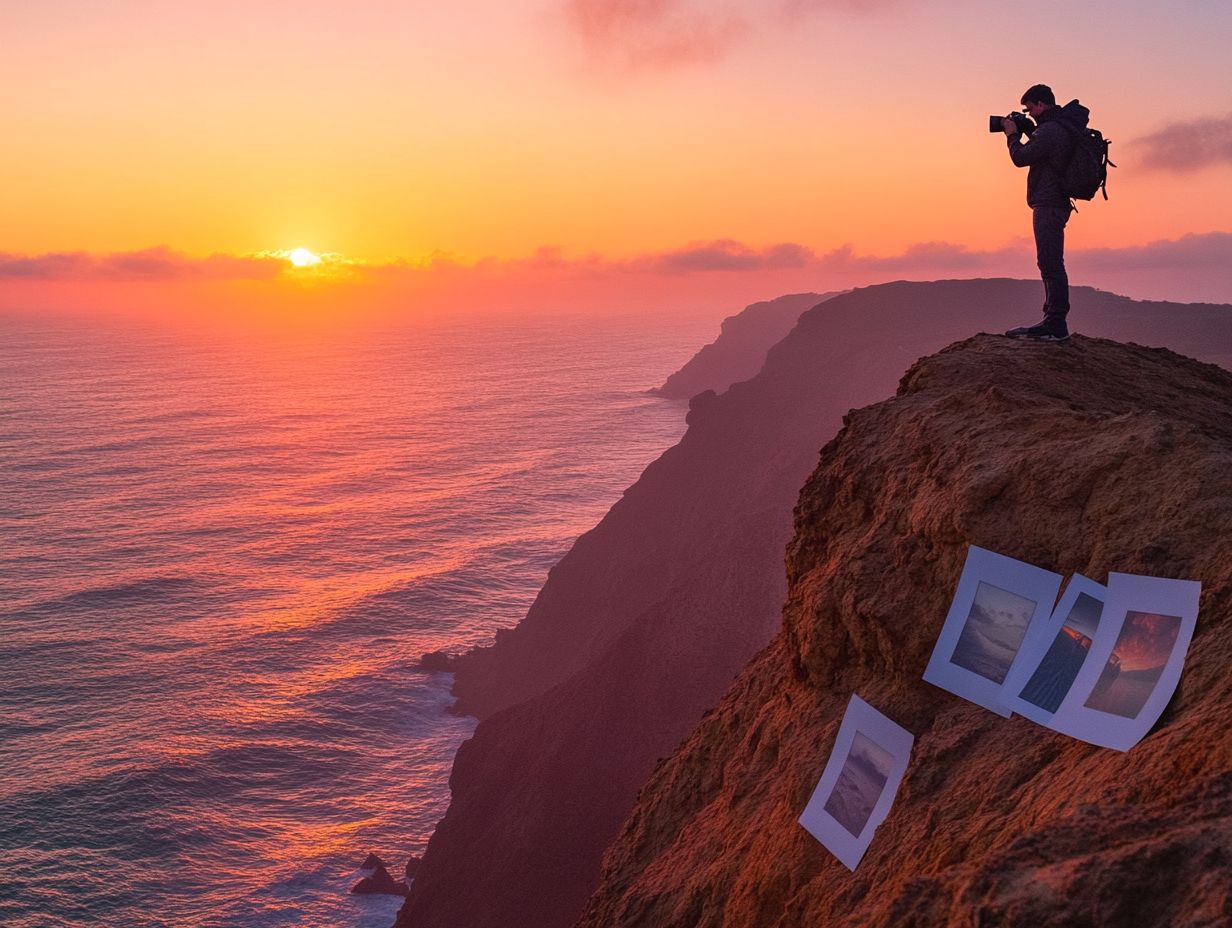
- Copyright provides legal protection for photographers’ work, offering rights and benefits like monetary compensation and control over how your photos are used.
- Registering copyrights for photographs is a simple process that can be done online, providing peace of mind and legal evidence of ownership.
- In cases of copyright infringement, photographers can take steps to protect their work and seek appropriate actions to stop the infringement and receive compensation.
Understanding Copyright Law for Photographers
Understanding copyright law is crucial for photographers in today s digital landscape. It dictates the ownership and exclusive rights associated with your photographic works.
This legal framework shields original images from unauthorized use and clarifies the rights you hold over your creations, including nuances of licensing agreements and the power to take legal action against copyright infringement.
Institutions like the U.S. Copyright Office and laws such as the Digital Millennium Copyright Act define these protections. With this knowledge, you can display and sell your work with confidence while safeguarding your intellectual property.
What is Copyright?
Copyright serves as a robust legal framework that grants you exclusive rights to your original works, including photographs. This means you control how your creations are used and distributed.
This protection lasts for a specified duration typically your lifetime plus 70 years ensuring you can reap rewards from your hard work while maintaining ownership over your artistic expressions.
Your exclusive rights encompass the ability to reproduce, distribute, publicly display, and create derivative works pieces created from your originals. Infringement occurs when someone uses your protected work without your permission, leading to legal repercussions for the infringer.
Unlike patents or trademarks that safeguard inventions and brands, copyright focuses on the expression of ideas. This highlights the essential need for photographers like you to secure your rights and protect your visual art from unauthorized use.
How Does Copyright Apply to Photographers?
For photographers, copyright automatically grants you rights to your images the moment they are created and fixed in a tangible medium, whether that s a digital file or a print.
This vital legal protection means that as soon as you capture an image, you hold exclusive rights over its use, reproduction, and distribution.
While these rights are inherent and require no formal action, registering with the U.S. Copyright Office can provide added benefits, such as the ability to sue for statutory damages and attorney fees in the event of infringement.
In today s digital landscape, shaped by the Digital Millennium Copyright Act, grasping the nuances of copyright is crucial for navigating potential challenges.
By managing your rights proactively, you can effectively defend against unauthorized use and safeguard the integrity of your work in an ever-evolving market.
The Benefits of Copyright Protection for Photographers
Copyright protection provides a wealth of advantages as a photographer. It grants you legal rights that meticulously safeguard your creative works, ensuring your artistry is respected and protected. For more insights, check out understanding copyrights: definition and importance.
It also opens the door to substantial financial opportunities through various licensing agreements and sales, allowing you to reap rewards from your talent and dedication.
Don t wait! Secure your rights today by considering copyright registration and taking steps to protect your work.
Legal Rights and Protections
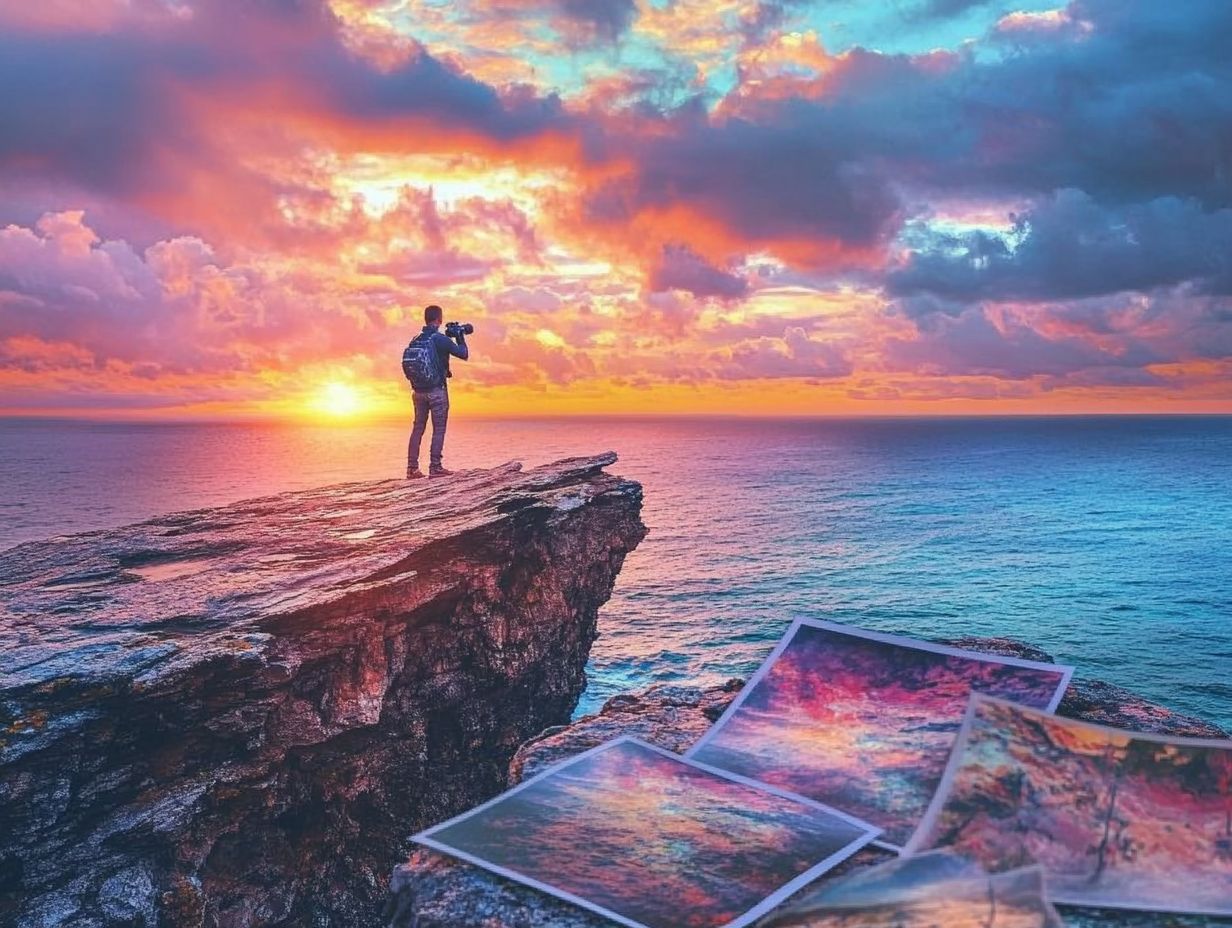
You hold legal rights that give you the power to protect your work from copyright infringement. This means you can issue cease and desist letters documents used to demand that someone stop infringing on your rights and take legal action when necessary.
These rights also extend to your ability to reproduce your images, publicly display them, and maintain control over any derivative works that stem from your original creations.
It’s crucial to comprehend how contracts where someone pays you to create can significantly impact your ownership and rights. In these scenarios, the employer typically claims the rights to the work produced, potentially limiting your ability to use your creations independently.
By establishing clear contracts and leveraging copyright registration, you can effectively enforce your rights and ensure that your creative efforts are safeguarded against unauthorized use.
Monetary Benefits
Monetary benefits for photographers can spring from various avenues, especially through licensing agreements where you can sell the rights to your images for specific uses.
By leveraging stock photography platforms, you can broaden your audience, allowing your work to shine in advertisements, websites, and publications. For instance, a prominent photographer transformed a passion for landscape photography into a flourishing business by offering exclusive licensing to magazines and companies in need of high-quality images.
Print sales are another lucrative opportunity. You can create limited edition prints that resonate with art enthusiasts and collectors.
Many photographers have successfully navigated this landscape, establishing themselves not only as creators but also as savvy entrepreneurs who recognize the immense value their work can offer to others.
How to Copyright Your Photographs
To copyright your photographs, you ll need to follow a few simple steps that lead to official registration with the U.S. Copyright Office. This process guarantees that your work is legally safeguarded, giving you peace of mind.
Steps to Register Your Copyright
Registering your copyright is a straightforward yet essential process. It involves submitting an application to the U.S. Copyright Office along with a deposit of your work and a fee, ensuring that your rights are formally recognized.
To kick off the process, you ll first need to complete the appropriate application form, which you can conveniently do online.
Next, submit either a digital copy or a physical sample of your work as a deposit; this serves as your record of original creation. Understanding the fee structure is crucial, as it varies depending on what type of work you re registering be it literary, artistic, or musical creations.
Once you ve submitted everything, be prepared for a processing time that can range from a few months to over a year. During this period, you ll receive confirmation of your application. When the process is complete, a certificate will be issued, solidifying your legal rights to your work.
Protecting Your Copyright
Protecting your copyright is essential in today s digital landscape. As a photographer, employing measures such as watermarks and clear copyright notices can effectively deter unauthorized use of your images. These actions safeguard your creative work and ensure that your rights are upheld.
Preventative Measures and Actions to Take
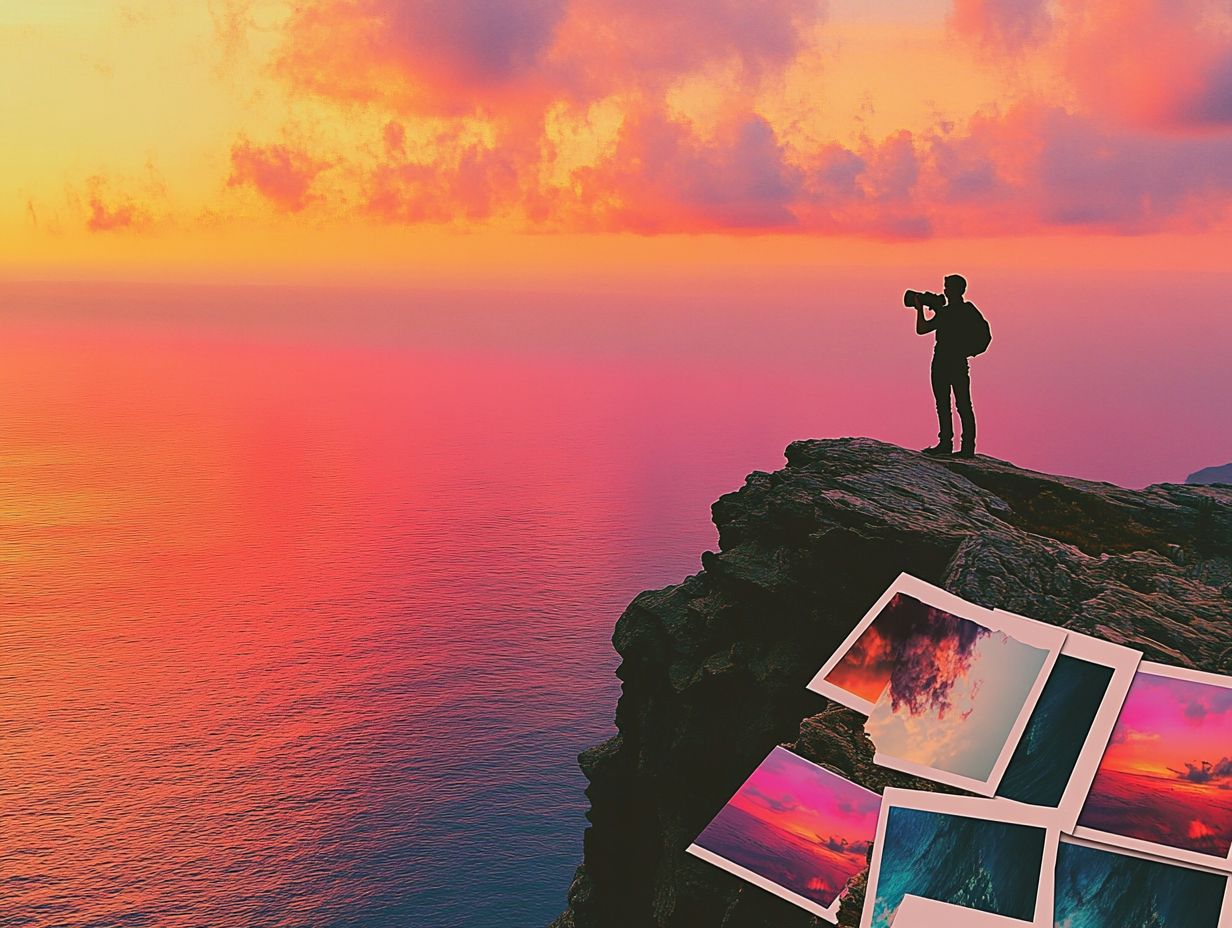
You can take several proactive steps to secure your copyright as a photographer. Use watermarks, display copyright notices, and know how to respond to infringements with cease and desist letters.
It s also vital to continually educate yourself about copyright laws and stay updated on the latest industry developments. This knowledge gives you the power to recognize potential threats to your work and take decisive action when necessary.
When crafting a cease and desist letter, clearly define the nature of the infringement and specify the resolution you seek whether it’s a simple acknowledgment or financial compensation. If the situation escalates, consulting a legal professional to explore your options for filing a lawsuit can further protect your creative rights.
Copyright Infringement: What to Do
In the unfortunate event of copyright infringement, you have several strong options available to you.
You can issue cease and desist letters to the infringer this letter asks someone to stop doing something that violates your rights. Alternatively, you may choose to pursue legal action to protect your work.
Steps to Take if Your Copyright is Infringed
If your copyright has been infringed, your first step is to gather evidence. Follow that up with a well-crafted cease and desist letter directed at the infringer, clearly outlining your rights and expectations.
Start by collecting all relevant documentation think screenshots, links, and dates of the infringement. This information is crucial as it serves as solid proof should the situation escalate.
Your cease and desist letter needs to be precise. Articulate the nature of the infringement, cite specific copyright regulations, and include a clear deadline for compliance. Maintaining a professional tone in this communication is essential; it bolsters your credibility and strengthens your position.
If the infringer ignores your letter, take action immediately. Document all communications. This meticulous record-keeping will be invaluable as you consider your next steps, whether that involves consulting with an attorney or exploring litigation to effectively protect your creative work.
Frequently Asked Questions
What is the importance of copyright for photographers?
For photographers, copyright is not just a legal term; it’s their shield against misuse. Copyright gives them the legal right to their original work and prevents others from using it without permission.
How does copyright protect photographers?
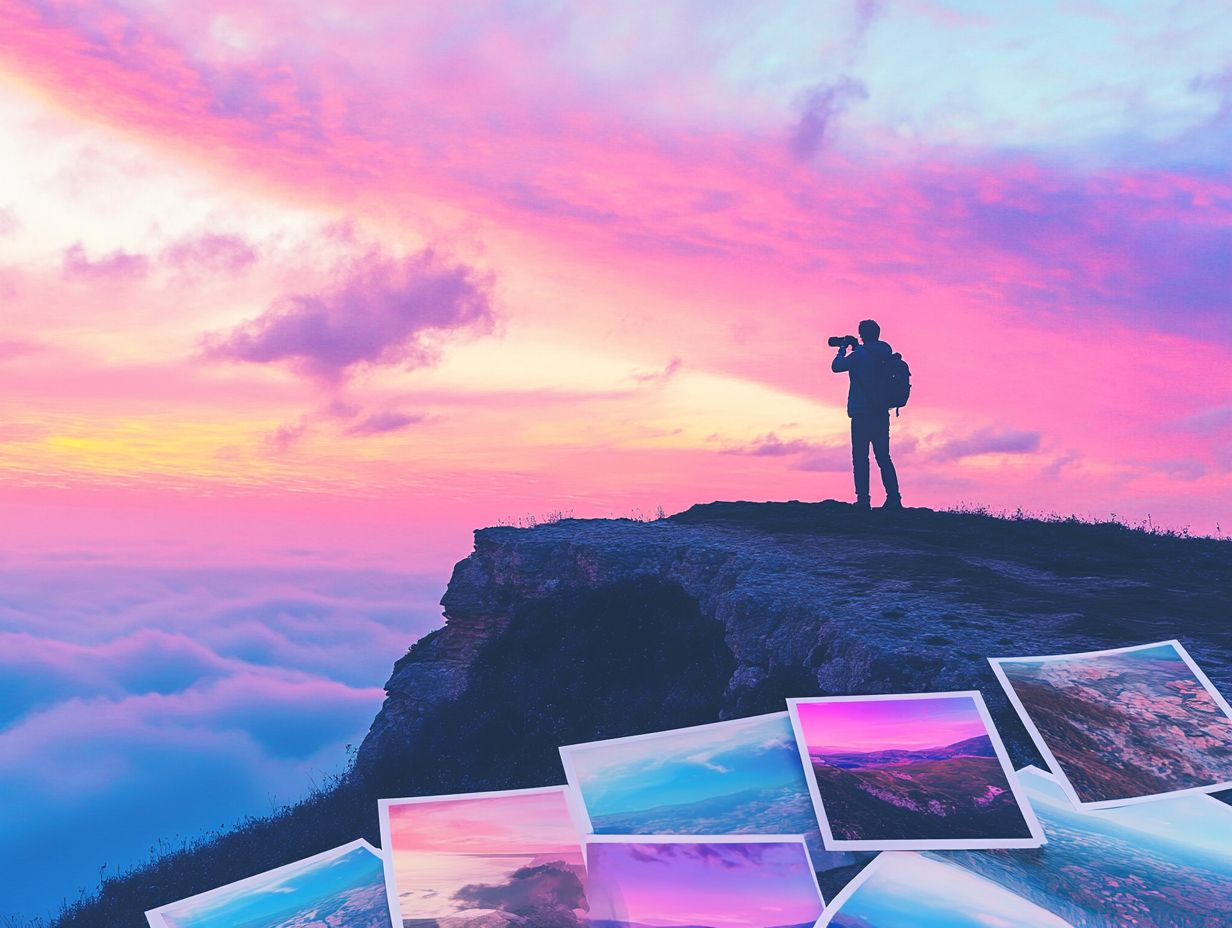
Copyright protects photographers by giving them exclusive rights to use, distribute, and profit from their photographs, as well as the right to prevent others from using their work without permission.
Do photographers automatically have copyright for their work?
Yes, photographers automatically have copyright for their work as soon as they create it, whether it is published or not. However, registering their work with the copyright office provides additional legal protection.
Is it important for photographers to register their work with the copyright office?
Yes, registering their work with the copyright office is important for photographers. It provides a legal record of ownership and makes it easier to take legal action against anyone who uses their work without permission. Understanding the importance of copyright in the publishing industry further emphasizes the need for this protection.
Can photographers sell their copyright to someone else?
Yes, photographers have the right to sell or transfer their copyright to another person or entity. However, they may still retain certain rights, such as the right to be credited as the creator of the photograph.
What happens if someone uses a photographer’s work without permission?
If someone uses a photographer’s work without permission, it is considered copyright infringement. The photographer can take legal action against the individual or entity, which can result in financial damages and the offender being required to stop using the photograph.
Don t wait! Protect your work today and ensure your creative efforts are recognized and valued.

